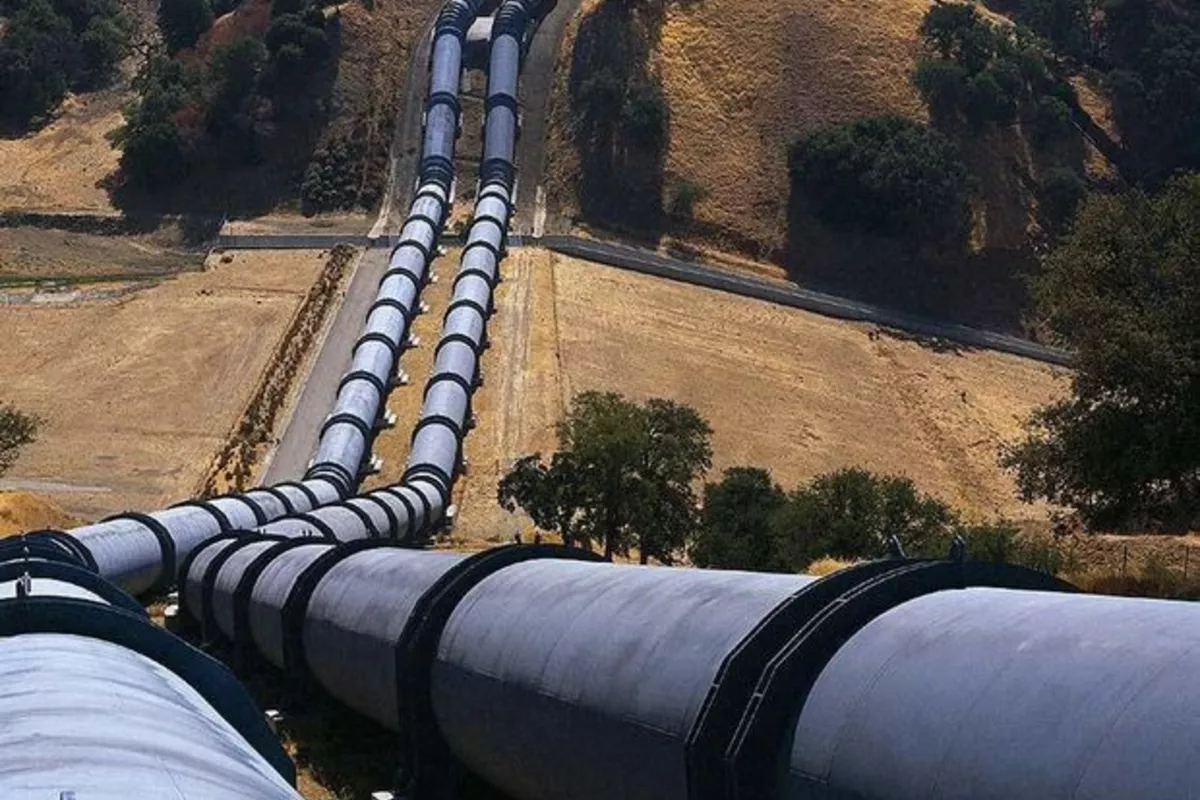
photo: Azernews
As global energy dynamics shift and regional logistics face increasing pressures, Kazakhstan is intensifying efforts to diversify its oil export routes. A key part of this strategy is the Baku-Supsa pipeline, which offers a reliable and strategically located path through Azerbaijan to Black Sea ports.
Kazakhstan and Azerbaijan are consistently strengthening the energy partnership that extends well beyond conventional logistics frameworks, The Caspian Post reports, citing local media.
Against the geopolitical shifts in the region, evolving export dynamics, and sanctions affecting several Caspian countries, the diversification of oil export routes has become more crucial than ever for Astana.
Kazakh Minister of Energy, Yerlan Akkhenzhenov, emphasized that the Baku-Supsa pipeline is being considered one of the most promising routes for transporting Kazakh oil to Black Sea ports.
“During the first six months of this year, approximately 750,000 tons of oil were transported via existing routes, compared to nearly 1.5 million tons for the entire previous year,” the minister said.
He noted that Kazakhstan plans to maintain similar supply volumes in 2025. However, if the economic environment proves favorable, the country is prepared to increase exports.
“We are in constant contact with our colleagues at SOCAR and are exploring all possible transport corridors, including the Baku-Supsa route,” Akkhenzhenov stressed.
Competitive Advantages of the Baku-Supsa Pipeline
The Baku-Supsa pipeline offers significant competitive advantages for companies whose crude oil is best suited for processing at refineries located along the Black Sea coast.
The experts said that the route remains attractive for both oil producers and traders, providing a reliable outlet to Black Sea ports with the potential for further deliveries to European markets.
In addition, with a throughput capacity of up to 5 million tons per year, the pipeline continues serving as a strategically important alternative for Kazakhstan-especially in the context of its efforts to diversify export routes. Baku-Supsa retains its long-term strategic relevance, further solidifying Azerbaijan’s role as a key transit hub in the region.
Beyond Pipelines: Expanding Kazakhstan-Azerbaijan Energy Cooperation
Chairman of the Board of KazMunayGas (KMG), Askhat Khassenov, emphasized that the energy cooperation between Kazakhstan and Azerbaijan has long extended beyond the simple transportation of oil.
“We always explore all possible avenues of cooperation with our colleagues at the State Oil Company of the Azerbaijan Republic (SOCAR). Currently, we are witnessing a steady annual increase in oil volumes transported via the Baku-Tbilisi-Ceyhan (BTC) pipeline,” Khassenov noted.
He added that the partnership between the two national oil companies also encompasses such areas as industrial safety, digitalization, and decarbonization.
“This cooperation is built on mutual trust and shared strategic interests between the two countries and their national companies,” Khassenov said.
First Deputy Chairman of the Board of KazMunayGas, Kurmangazy Iskaziyev, announced that Kazakhstan intends to increase oil transit volumes via the Aktau-Baku-Ceyhan route to 1.7 million tons in 2025.
“The transit volume of Kazakh oil along the Aktau-Baku-Ceyhan corridor has already been raised to 1.4 million tons under our agreement with SOCAR-an increase of 27 per cent. This year, we plan to boost that figure to 1.7 million tons,” Iskaziyev stated during an extended session of Kazakhstan’s Ministry of Energy.
This growth reflects not only the economic viability of the route but also the high level of political and operational coordination between the two nations. In 2022, KazMunayGas and SOCAR signed a General Agreement on oil transit, and in March 2023, a test shipment of 7,000 tons of oil from the Kashagan field was successfully carried out.
As of the end of 2024, Kazakhstan’s total oil transportation volume reached 83.5 million tons, marking a 4 per cent increase compared to the previous year.
An Energy Alliance Strengthening Regional Stability
The energy partnership between Azerbaijan and Kazakhstan is entering a new phase, combining traditional oil cooperation with the advancement of green and digital initiatives. For Kazakhstan, transit routes through Azerbaijan offer an opportunity to reduce transportation risks and expand the geographical reach of its exports. For Baku, this collaboration reinforces its role as a key hub in the Caspian region, through which major energy flows reach global markets.
Both countries are demonstrating a shared readiness to adapt to emerging global challenges-ensuring not only energy security but also the sustainable development of their economies.
Share on social media